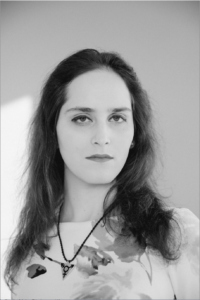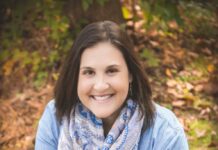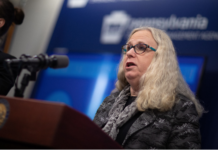
When rabbi and transgender activist Abby Stein was growing up in her Chasidic community, there was no word for “transgender” in her first language of Yiddish.
Stein said that she did not witness homophobia or transphobia in her community, but instead had no knowledge that queer or transgender people existed.
“I wish I had a teacher when I was 10 years old who would tell me how terrible trans people are, and that we’re going to hell,” she said. “At least I would have known that people like me exist.”
In her June 3 talk over Zoom, “Journey for One’s True Self,” hosted by Hadassah of Greater Philadelphia, Stein chronicled her departure from her Orthodox Jewish community and the challenges she faced as a transgender woman.
She asserted that LGBT people in the Jewish community should not just be visible or tolerated, but celebrated.
“Tolerance is meant for lactose or for nuts, or sometimes, for the choice of your friend’s latke toppings,” Stein said. “Tolerance is not for people. People, we need to learn to celebrate.”
Stein, 29, grew up in Williamsburg, Brooklyn, the sixth of 13 children and a direct descendant of the Baal Shem Tov, the founder of Chasidism. She attended yeshiva and became ordained as an Orthodox rabbi. Before leaving her Chasidic community in 2012, Stein married, had a child and was divorced by the age of 21.
Her 2019 memoir, “Becoming Eve: My Journey from Ultra Orthodox Rabbi to Transgender Woman,” recounts her life up to that point and includes in the epilogue the story of when she came out to her father in 2015.
“My dad never knew the word transgender until I came out,” Stein said. “It wasn’t a matter of acceptance. He didn’t know that trans people exist.”
Though Stein remarked on the difficulties of LGBT erasure and lack of support from her family after coming out, she cautioned against the belief that LGBT people have only recently existed in Jewish spaces.
“Regardless of how we have been treated, we have always been,” Stein said.
Stein asked her audience of more than 80 how many genders existed in traditional Judaism. As audience members typed “two,” “four,” “three,” “zero,” Stein looked shrewd. “I take no pleasure in saying what I’m about to say but … you’re all wrong!”
Drawing on excerpts from the Mishnah from more than 1,800 years ago, poems from 13th-century rabbis and kabbalistic teachings, Stein assured her audience that she wasn’t making anything up: There are six-to-eight gender identities described in Jewish texts, each with their own relationship to being male, female, both or neither.
Despite the textual evidence, Stein doesn’t believe she should have to use them to prove her existence as a trans woman: “I don’t think we need religious texts to justify who we are. I don’t like that. We need to learn to accept people because of who they are, because that’s the right thing to do.”
In 2016, Stein celebrated her bat mitzvah and naming ceremony at Romemu Synagogue in New York. She showed her audience a portion of the event via a grainy video clip. After the rabbi announces her name, Stein is nearly swallowed by congregants and clergy singing and dancing around her, rejoicing.
Since then, Stein helped found Sacred Space, a forum for interfaith women and non-binary people to celebrate traditions and spirituality, and reclaimed her title of rabbi that she denounced after leaving her Orthodox community. She is working on a cookbook, another memoir and a television show.
Stein no longer sees her Judaism and queerness in contention with one another, and in her talk, which coincided with the first days of LGBT Pride Month, she wanted to make sure others did not see that way, either.
“Being Jewish makes me a better person and a better queer person; being queer makes me a better person and a better Jewish person,” she said. “And that is something that is worthy of celebration.”
[email protected]; 215-832-0741






